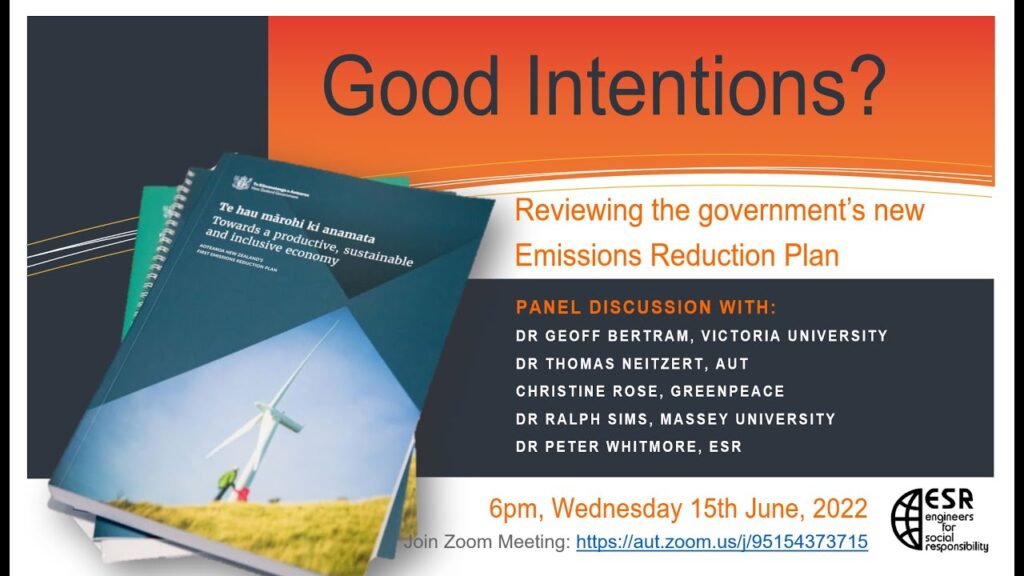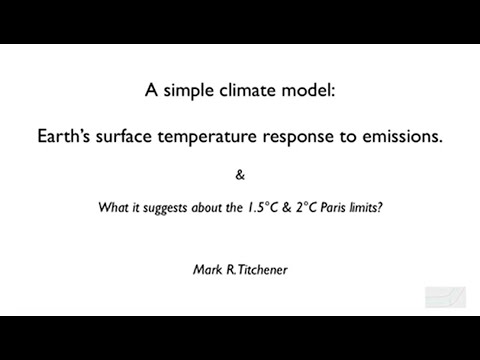Posts Tagged ‘Climate crisis’
Submission to the Climate Change Response (Zero Carbon) Amendment Bill
We strongly support the Bill’s objective of limiting global heating to 1.5ºC, legislating targets projected to make this possible, creating a framework of five-yearly emissions budgets to make meeting the targets achievable, and establishing an independent Climate Change Commission to assist with the above.
Read MoreSubmission to Ministry of Business, Innovation, and Employment on the Building for Climate Change Framework
As a group of professional engineers, Engineers for Social Responsibility Inc strongly endorses MBIE’s commitment to meet the government’s Carbon Zero targets by 2050, and the implementation of changes to our Building Consent regulations that will improve operational efficiencies and reduce lifecycle carbon emissions from New Zealand’s building stock.
Read MoreSubmission on the Climate Change Commission’s Recommendations
Although the need for action to limit climate change has been well understood since at least 1990, global CO2 e emissions have continued to increase strongly over the past 30 years.
Read MoreSubmission on the Auckland Land Transport Plan 2021-2031
Engineers for Social Responsibility Inc. is of the firm view that the Draft Auckland Regional Land Transport Plan 2021 – 2031 (Draft ARLTP 2021) should be put on hold and revised when the Central Government has developed clear climate change policies and interim targets following finalisation of the Climate Change Commission’s Draft Advice for Consultation.
Read MoreGood Intentions? Reviewing the Government’s New Emissions Reduction Plan
New Zealand’s first emissions reduction plan was released by the Ministry for the Environment on 16 May 2022. An expert panel offered its reaction and comments on the government’s emission reduction targets and on the policies and strategies to reduce emissions for sectors such as transport, energy, waste, building construction and agriculture. Challenges lie ahead if we are to make an appropriate contribution to global efforts to limit temperature rise to 1.5°C.
Read MoreA Simple Climate Model of Earth’s Surface Temperature Response to GHG Emissions
A simple dynamical model relating Earth’s expected surface temperature anomaly to CO2 emissions will be presented. The obvious constraints and limitations aside, such a dynamical model enables a variety of emissions scenarios to be explored. Results are compared against findings in the IPCC AR5 and SR15 reports and we reflect on possible pathways ahead.
Read MoreNew Zealand’s Nationally Determined Contribution (NDC) And Emissions Budgets Need Urgent Review
Our current Nationally Determined Contribution (NDC), made under the Paris Agreement, is extremely weak. While not clearly stated, the undertaking to reduce our emissions by 30% over the 2005-2030 period is based on a comparison of gross emissions in the base year with net emissions in the target year. On a consistent net-net basis it is actually an undertaking to increase our net emissions by approximately 1% over this period.
Read MoreA New Perspective on the Importance of Methane in New Zealand’s Greenhouse Gas Emissions
Recent analysis shows that in the relatively short timeframe available to curb our carbon emissions, it is even more important than we thought to get on top of our methane emissions. This is not an easy message to get across in New Zealand, which relies heavily on its agricultural economy.
Read MoreSubmission To: Climate Action For Aotearoa
Although the need for action to limit climate change has been well understood since at least 1990, global CO2e emissions have continued to increase strongly over the past 30 years and only now is the rate of increase showing some signs of deceleration. It has become very clear that, in order to avoid potentially disastrous consequences, we need to limit global warming to 1.5°C above pre-industrial levels. The Paris Agreement, which came into force on 4 November 2016, was a step forward in addressing this very major challenge, but the Nationally Determined Contributions (NDCs) submitted so far are not nearly adequate to meet the target.
Read More


